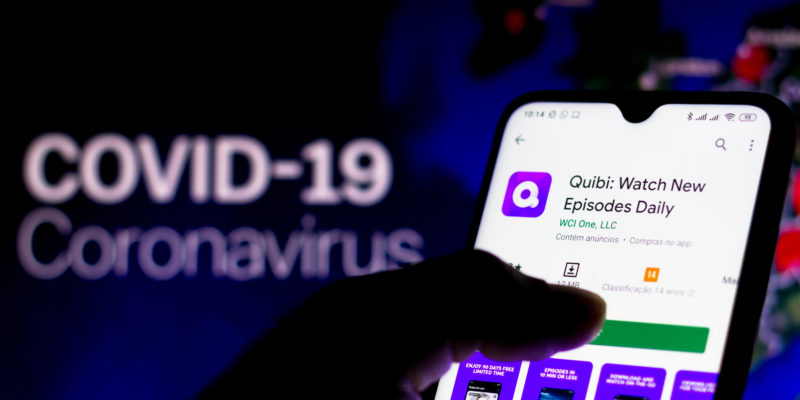The Takeaways:
- Quibi is a subscription-based streaming platform designed to deliver short-form scripted and unscripted content to your cell phone.
- Investors include Warner Bros., NBCUniversal, Disney, BBC Studios, Lionsgate, and MGM, according to media reports.
- The streaming platform raised $1.75 billion for glamorous Hollywood content with A-list talent but has failed to capture and retain audiences.
- So far only 1.5 million people have signed up for the 90-day free trial, and less than half of those users are likely to start paying ($5-8 per month) for the app now the trial has ended.
What Went Wrong?
Quibi founder Jeffrey Katzenberg, who also co-founded DreamWorks, admits disappointment and attributed “everything that has gone wrong to the coronavirus.”
Crucial marketing services offered by T-Mobile, Quibi’s most important launch partner, were significantly hindered given most stores were closed. Additionally, the app’s target audience is “on the go” users who, since launch, have been largely stuck at home.
However, plenty of other streaming platforms have seen their audiences and viewership boom since the stay-at-home orders began. Instagram Live and TikTok are surging, and screen time has increased dramatically. U.S. mobile usage increased 23 additional minutes, and 10 of those minutes were on mobile video.
Economic factors also play a part. Of the 40 million newly unemployed in the US, a disproportionate number are the young digital audience Quibi is trying to capture.
What Can be Learned?
Quibi seemed to have all the components required to succeed, but it’s disappointing flop indicates its leadership misunderstood their target audience of 18-34 year olds. Programming choices tend toward reboots of shows from 20 years ago such as Reno 911!, and critics point out that digital influencers, not traditional Hollywood stars, should have taken centre stage.









